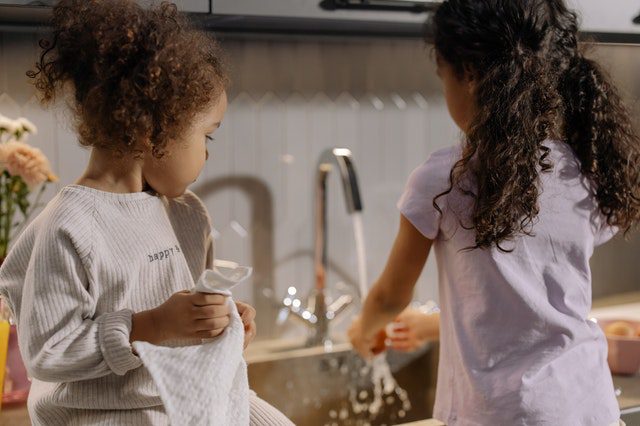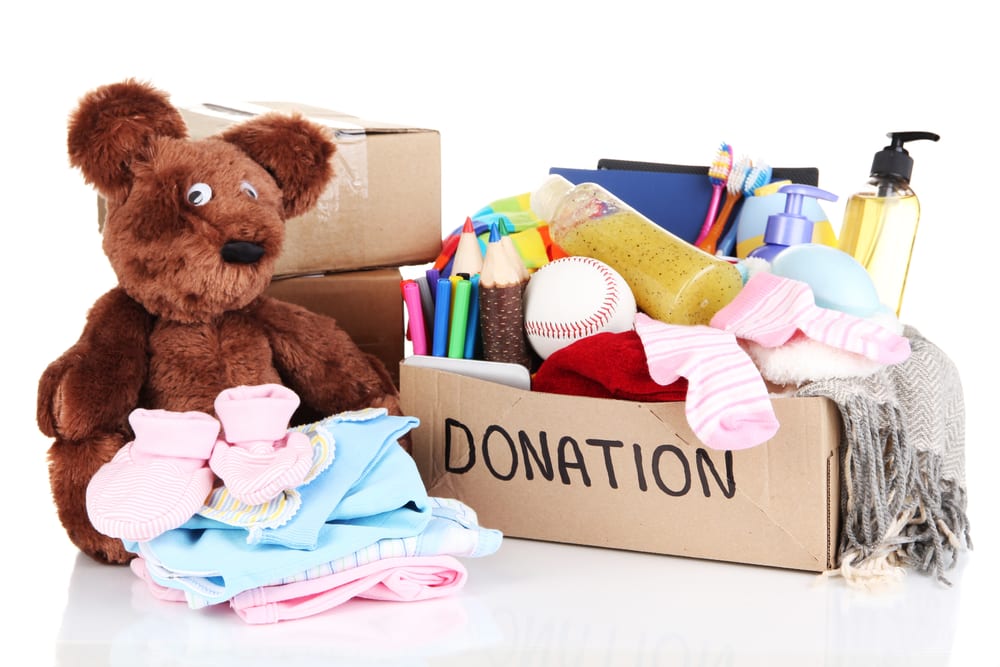10 Tips to help keep your home organized when kids are out of school
Reading Time – 5 minutes
Putting some planning into the time when your children are out of school will make life at home easier. Don’t over plan activities for the children. Give them time to appreciate being at home and then going back to school. Share the planning and the fun. Make it a special time together full of joy, learning and excitement, not stress, tension and arguments.
10. Make a list of things that need to be done around the house. For example, sweep out the garage/shed, break down boxes and put them in recycling, etc. When the children start fighting or complain about being bored, tell them to pick a task from the list. You get small jobs done and they are separated and not fighting. I used this one summer. It worked so well that they only fought once. They found things to do so they were not bored. Three things were completed from the list.
9. Pack the backpack with the necessary items for the next day the night before and place it near the door. Make your morning going off to day camps, activities or childcare easy to get out the door quickly.
8. Have a routine for wet swimming towels and bathing suits. They might hang them up, give them to you or place them in a specific spot. It is an easy way to help them learn about responsibility. No one wants to get into a wet bathing suit or reuse a damp towel.
7. Have an agreement about snacks and dirty dishes. Make a list and post it with snack choices. Set a timer for snack time if you have young children. Are dirty dishes put in a dishwasher, placed in the sink, washed or left on a table? If the agreement is not kept then have them decide on a consequence. Children are very good at deciding on consequences you might never have considered.
6. Determine a schedule for their activities, whether they are in programs or at home. Include screen time, outdoor time, reading time, and creative time. Also included in that schedule, is a time when you will be “unavailable to them” when you are all at home. Use this “unavailable time” to get necessary tasks done around the house so things don’t get disorganized. It is easy to always put off household tasks to help, to play, or be constantly interrupted by your children so things don’t get completed.
5. Have a routine for getting meals on the table and food and dishes put away. There are a number of tasks involved at mealtime: setting the table, food preparation, cleaning up leftovers, clearing dishes from the table and washing dishes. Give everyone a task to do. Record the tasks on a calendar and assign a person to each task. The task assigned each day will depend on who is home before supper and who may have an activity after supper and have to quickly get ready to leave.
4. Have a morning routine. Getting things done in the morning before the day gets busy is the best way to keep things organized. Set a time for the latest children can sleep in. Waiting for people to get up can be very frustrating if people are on very different schedules. This agreed upon time may be different for each day of the week. Tasks may include making their beds, making, eating and cleaning up their breakfast, tidying up things that were left out from the previous day, and completing a household chore. Pick tasks that will help to make the day easier and keep the living space neat and tidy.
3. Declutter as you go. If children aren’t interested in some toys (inside or outdoors) collect them and donate them. If their clothing is too small or they won’t wear it, start a bag or box so they know where to put things they no longer need. They may have books or craft supplies that they have outgrown, collect them too. You may decide to give them a challenge, find 5 things each day that you no longer need, use or love.
2. Try new ways of getting things done at home that are fun, simple and easy. Summer is the perfect time to change the way things are done. There is a little more time to teach children new skills and routines because there isn’t the pressure of getting homework done and getting to bed.
1. Sit down and have a family conversation about the expectations for the summer. Include when bedtime will be, responsibilities, consequences, special trips, activities and events everyone would like to do. Let the children help with the summer plan and take ownership in developing it. When everyone is happy, things go a lot smoother. Enjoy the time together.
Add tip number 11 in the comments. What do you do to stay organized with the kids around the home?
 Julie Stobbe is a Trained Professional Organizer and Lifestyle Organizing Coach who brings happiness to homes and organization to offices, coaching you virtually using Zoom. She enjoys working with her clients to provide customized organizing solutions to suit their individual needs and situations. She reduces clutter, streamlines processes and manages time to help her clients be more effective in reaching their goals. Julie can coach you to break-free of the physical or emotional clutter constraining you from living life on your terms. Online courses are available to help instruct, coach and support your organizing projects. Get started by downloading Tips for Reorganizing 9 Rooms.
Julie Stobbe is a Trained Professional Organizer and Lifestyle Organizing Coach who brings happiness to homes and organization to offices, coaching you virtually using Zoom. She enjoys working with her clients to provide customized organizing solutions to suit their individual needs and situations. She reduces clutter, streamlines processes and manages time to help her clients be more effective in reaching their goals. Julie can coach you to break-free of the physical or emotional clutter constraining you from living life on your terms. Online courses are available to help instruct, coach and support your organizing projects. Get started by downloading Tips for Reorganizing 9 Rooms.
Contact her at julie@mindoverclutter.ca
X – Facebook – Facebook group Organizing Mind and Space






I’m a big fan of assigning age-appropriate tasks to everyone. It’s the best way to share the load and teach kids that nothing happens unless someone makes it happen.
I like your phrase “nothing happens unless someone makes it happen”. In some homes that idea is not shared by everyone and one person is left to make everything happen or as much as they can and then problems arise.
Wonderful ideas. Thank you for sharing them
You’re welcome. my pleasure
Very helpful list – definitely sharing it out!
I love #1. If you don’t have that conversation all the planning in the world won’t work. Everyone needs to be on board or at least aware of the rules.
Summer can be a fun time for everyone if the whole family participates in the household chores.
Whenever the regular routine changes, people don’t always realize that responsibilities change with the new routine.
Making cleanup part of the dinner process is such a good habit to teach children! Cleaning as you go in general is much, much easier than doing a week’s worth at once.
Great article!
There are many small habit that can be established that keep a home organized without spending a lot of time doing any work. Cleaning up directly after eating is one. It only takes a few minutes when everyone does their share. Putting things away, helping each other when someone doesn’t have a lot of time and giving yourself enough time between events so you can clean up before starting something new all help to avoid clutter building up each day until it becomes a large problem.
“Declutter as you go” is always my favorite. I’m always purging and organizing my own things but just recently purged some of our fur-baby’s toys and organized my husband’s dresser. He’s usually good at organizing his space but he let things pile up on top of the dresser. He was grateful for the help.
Maria it is great that you have build that habit into your life. Declutter as go is the easiest way to stay organized. Life changes, purchases are made and interests change. If you declutter through all of those situations in your life than unnecessary items don’t pile up and someone who needs them can use them.
I love this. 10 was wonderful, and then so were each of the following 9.
Thank you for sharing.
I like #10 also. For me it was a productive way to redirect their behaviour to something positive, helping Mom. Some may see it as a punishment. I think it is in how you present the list to your child.